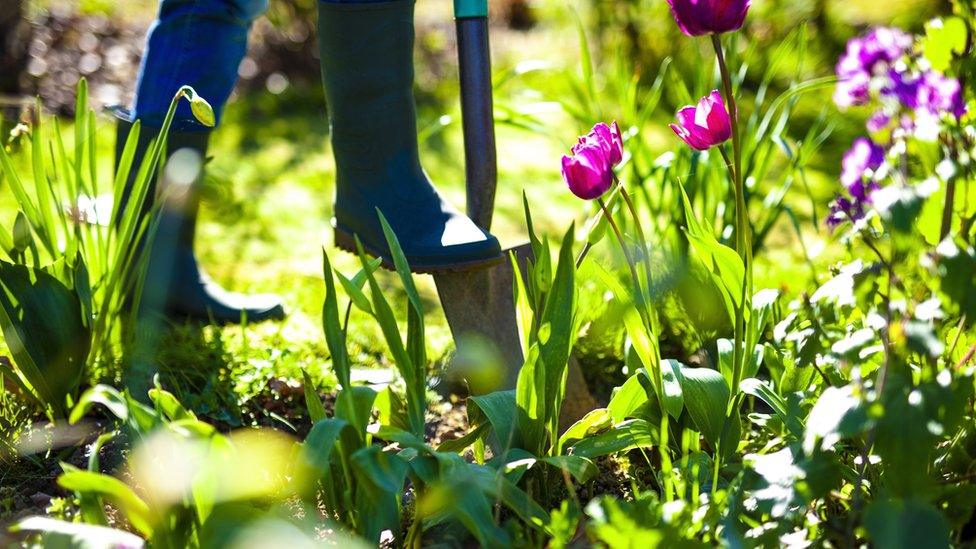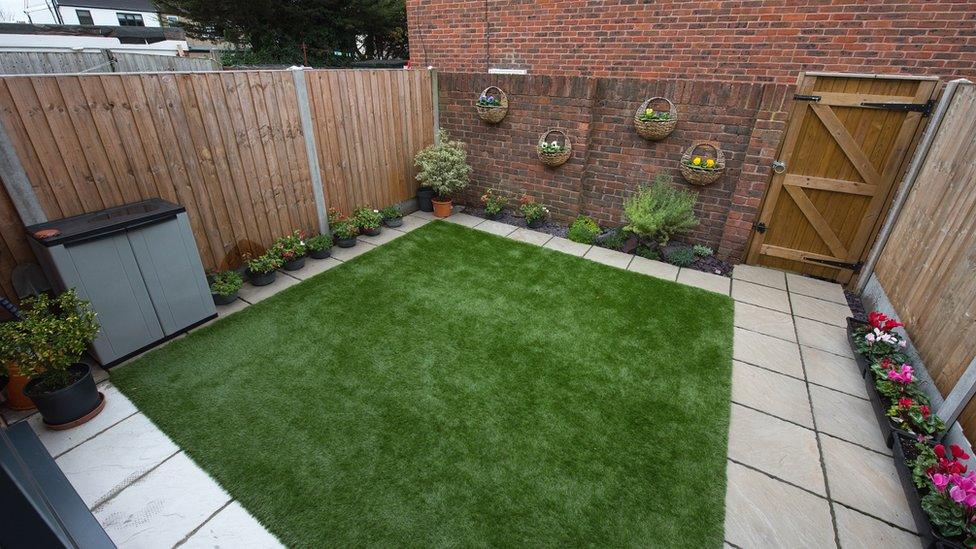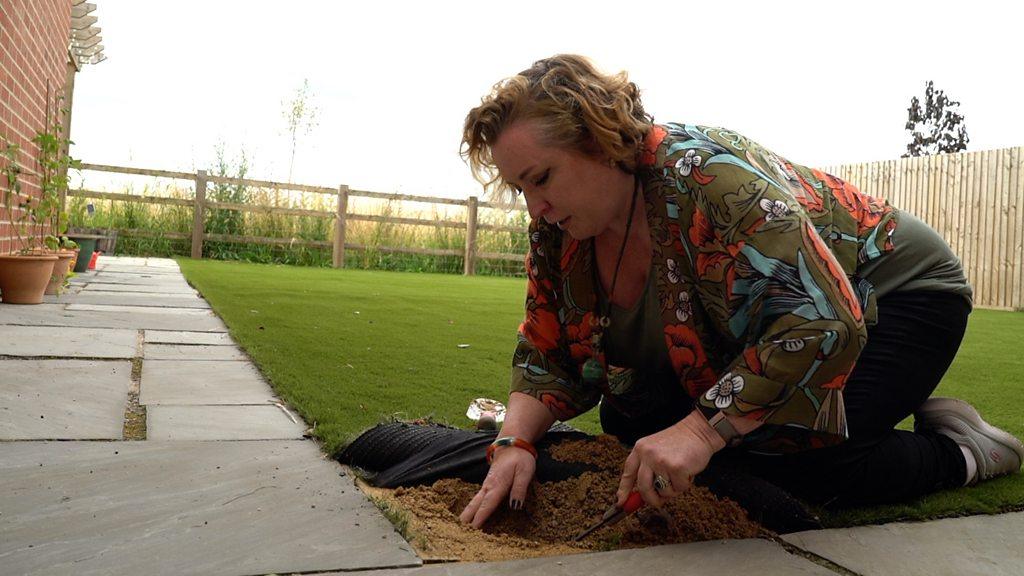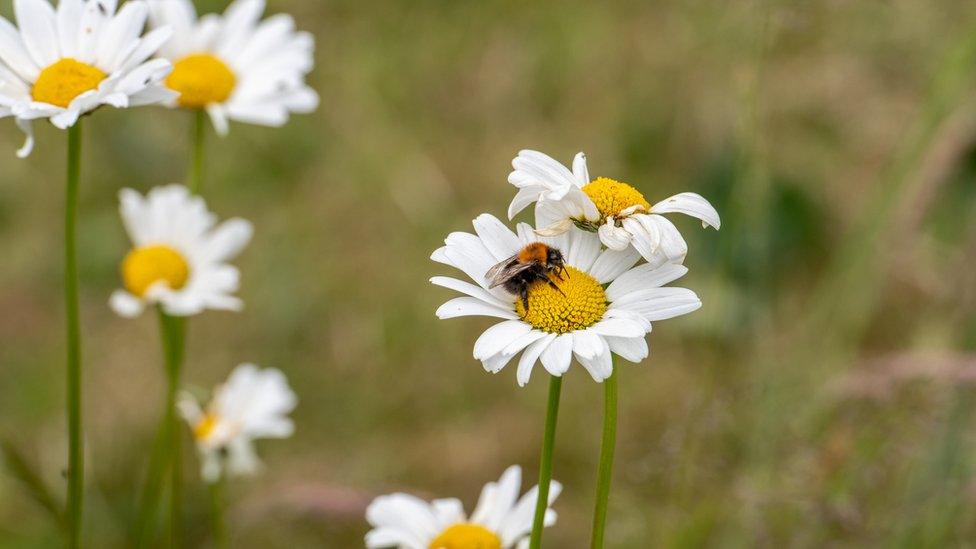Sheffield scientists call for ban on artificial grass
- Published

Some cities have lost half of their green garden space in the past 20 years, according to researchers
Householders should receive a council tax discount if they garden sustainably, researchers have said.
Artificial grass and pesticides should also be banned to help protect the environment, according to a study by the University of Sheffield.
Professor Ross Cameron said gardens must be "full of plants to be beneficial to the local environment".
The government is aiming for everyone to be able to access green space within a 15-minute walk from their home.
Some cities may have lost half of their green garden space over the past 20 years, with homeowners paving over areas for driveways and patios or replacing it with fake grass, the researchers said.

Prof Ross Cameron, author of the study, said gardens should be full of plants to be beneficial to the local environment
Prof Cameron said this leads to rising urban temperatures, because plants help cool the air around them.
"Gardens account for a third of all our urban areas and are vital spaces in terms of keeping our buildings and city environments cool in summer, absorbing rain to avoid flash flooding and providing an important refuge for wildlife," he said.
"Many residents use artificial grass that kills much of the soil life underneath it, and when real plants are present, we wrongly assume we need to hit them with a cocktail of chemicals to keep them alive and free of pests."
The study, published in the journal Urban Forestry and Urban Greening, calls for policymakers to introduce incentives to make sure gardens are well planted, such as money off bills for householders and financial rewards for people who plant trees.

Researchers suggested government should ban artificial grass in gardens
Will Teare, 32, from Norton Lees, Sheffield, has planted his garden with vegetation that helps wildlife.
"The family gets a lot of enjoyment out of it, the birds coming to nest, or watching the frogs and newts around the pond, it brings the garden to life, and is a source of excitement for the kids," he said.

Will Teare said creating a well planted garden has a number of benefits
A Department for Environment, Food and Rural Affairs (Defra) spokesperson said there were no plans to ban artificial grass or give people money off their bills for maintaining their gardens.
But they said the government has launched a planning tool to help councils set a target for the amount of green space provided in new housing developments.
"Green spaces and parks in England deliver an estimated £6.6 billion of health, climate change and environmental benefits every year," the Defra spokesperson said.
"Our Green Infrastructure Framework will also help increase the amount of green cover to 40% in urban residential areas, supporting equal access to green space across the country."

Follow BBC Yorkshire on Facebook, external, Twitter, external and Instagram, external. Send your story ideas to yorkslincs.news@bbc.co.uk, external.
Related topics
- Published18 April 2023

- Published8 August 2022

- Published29 April 2022
